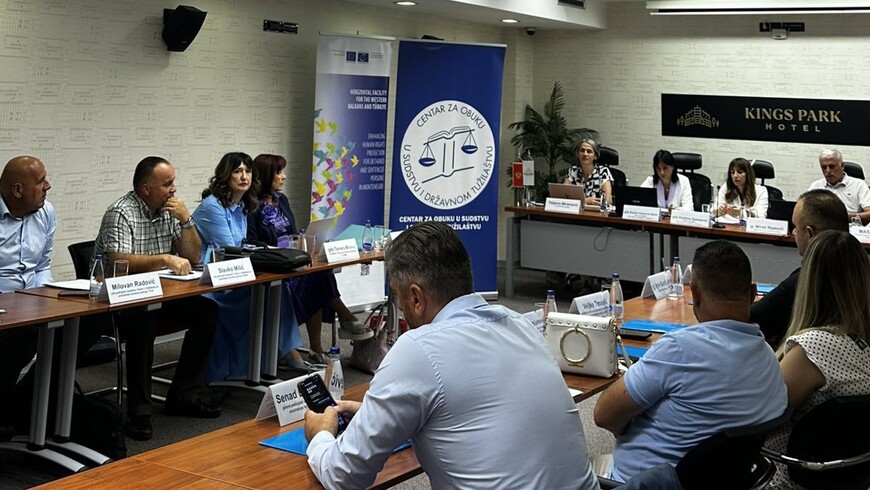Prosecutors, judges, prison system and Internal Affairs of the Ministry of Interior officers further improved their skills in combating and preventing ill-treatment during a two-day training session held in Podgorica on 18–19 July.
Key investigative actors had the opportunity to work together to acquire new skills, with the aim of more fully complying with Article 3 of the European Convention on Human Rights and subsequently, the standards and recommendations of the CPT.
In cooperation with the Center for Training in the Judiciary and the State Prosecutor's Office, Council of Europe ensured the participation of regional consultants, who, in collaboration with the national team of trainers, ensured that focus is put on CPT recommendations and judgments of the European Court of Human Rights (ECtHR). Through practical exercises, analyses of relevant judgments, and international best practices, participants identified existing shortcomings and explored optimal solutions for Montenegrin legal system. Enhancing the cross sectoral cooperation, necessary for an effective investigation, Montenegrin justice system is enhancing its abilities to meet the latest human rights standards.
Such exercises contribute to the fight against ill-treatment and especially to prevention of impunity, which is one of the key findings of the CPT.
The session was organised under the action, “Enhancing human rights protection for detained and sentenced person in Montenegro”, as part of the joint European Union and Council of Europe programme “Horizontal Facility for the Western Balkans and Türkiye”, implemented by the Council of Europe. This initiative plays a crucial role in supporting Montenegro's efforts to meet European human rights standards, contributing to the country's ongoing criminal justice reforms.


